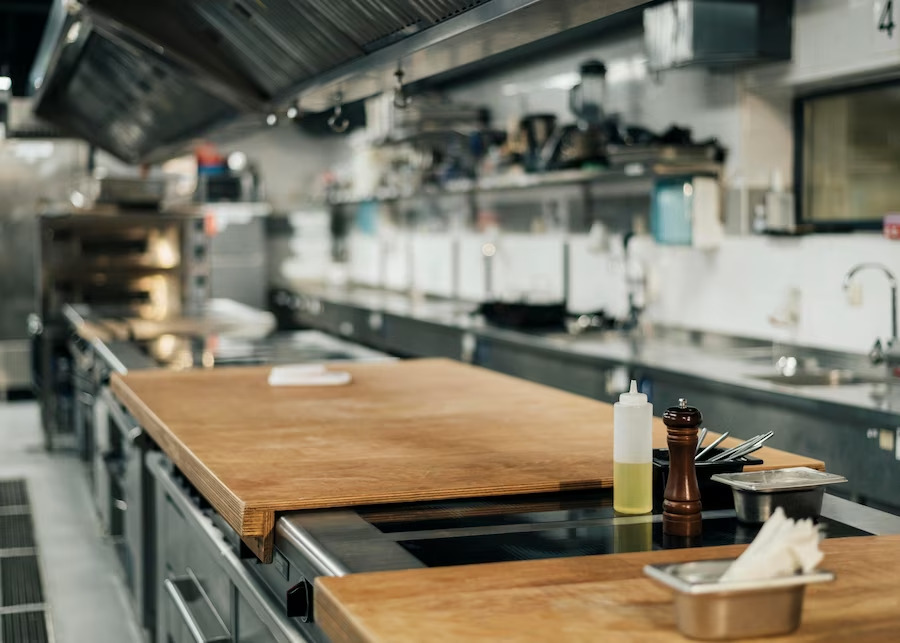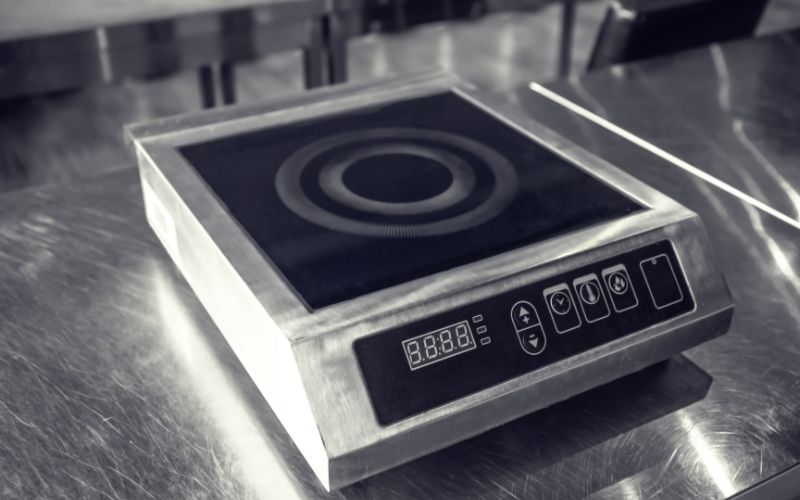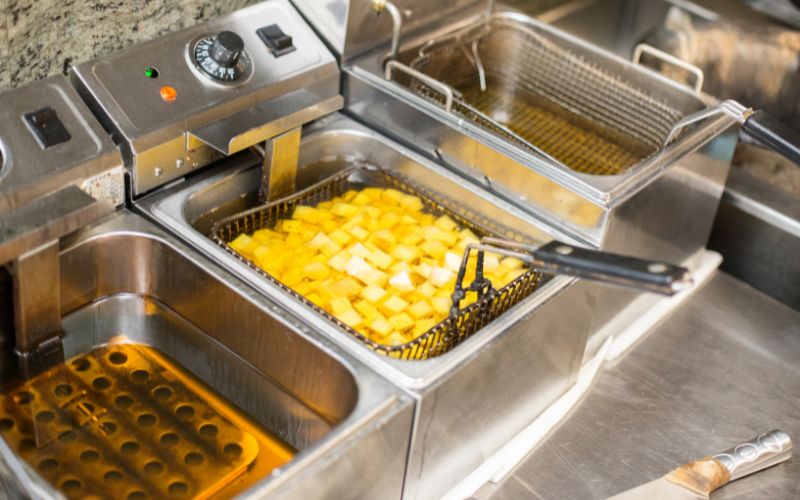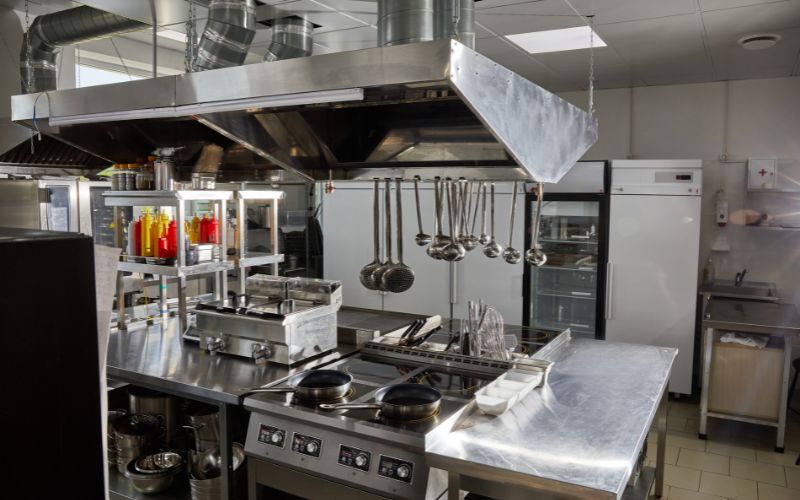The Significance of Commercial Kitchen Sanitation


In the dynamic world of food service, commercial kitchens are the epicentres where culinary magic happens.
These bustling environments are responsible for creating delectable dishes that satisfy hungry patrons. However, maintaining impeccable kitchen sanitation is paramount amidst the hustle and bustle.
In this blog post, we will delve into the vital importance of kitchen sanitation in commercial kitchens, emphasising the role of commercial kitchen supplies in ensuring a safe and efficient workspace.
The Health Connection
In commercial kitchens, the stakes are higher, as the scale of food preparation and service is substantial. The health connection here is not only about personal well-being but also about safeguarding the health of countless customers:
Foodborne Illnesses: Commercial kitchens that neglect proper sanitation can become breeding grounds for harmful bacteria, leading to widespread illnesses. These can not only harm patrons but also tarnish a restaurant's reputation.
Legal Consequences: Failure to maintain rigorous sanitation standards can result in legal issues, fines, and even the closure of a food establishment.
Preventing Cross-Contamination


Cross-contamination is a formidable adversary in commercial kitchens, where many ingredients and dishes are prepared simultaneously. To prevent this, adhere to strict protocols:
Segregated Workstations: Designate specific work areas for different tasks, such as raw meat preparation and vegetable chopping, to minimise cross-contamination risks.
Proper Staff Training: Ensure that all kitchen staff are well-trained in food safety practices, including thorough handwashing, gloves and other protective gear.
Food Quality and Freshness
In commercial kitchens, maintaining food quality and freshness is not just about taste but also about the bottom line:
Customer Satisfaction: Fresh, high-quality ingredients, handled with care, translate into delicious dishes that keep customers returning.
Waste Reduction: Proper storage and handling practices minimise food waste, a key consideration for environmental responsibility and cost-effectiveness.
Setting a Good Example
In the professional culinary world, setting a good example is essential for maintaining high standards:
Leadership Matters: Head chefs and kitchen managers must lead by example, demonstrating a commitment to sanitation and food safety.
Team Training: Regularly train kitchen staff on sanitation protocols and ensure they understand the importance of their role in maintaining a clean and safe kitchen.
Social and Environmental Responsibility


Commercial kitchens have a significant impact on society and the environment, making social and environmental responsibility a crucial consideration:
Reducing Food Waste: Commercial kitchens can reduce the ecological footprint by minimising food waste through proper storage and handling.
Sustainable Practices: Consider adopting sustainable practices such as energy-efficient appliances and responsible waste disposal to lessen the environmental impact of kitchen operations.
Conclusion
In conclusion, the significance of kitchen sanitation in commercial kitchens cannot be overstated. It's not just about complying with health regulations; it's about ensuring customers' well-being, maintaining your establishment's reputation, and contributing to a more responsible and sustainable food service industry.
For all your commercial kitchen supplies needs, look no further than Leading Catering Equipment. Their top-notch equipment and services are tailored to meet the rigorous demands of commercial kitchens.
Call or message them today to equip your kitchen with the tools needed for a clean, efficient, and safe workspace that lives up to industry standards.
Your commitment to sanitation starts here.





